Search

WEHI Advanced Genomics Facility
- 7
- 12
- 6
Comprehensive genomics facility for internal and precinct researchers offering Illumina, MGI and Nanopore sequencing options and focusing on functional, single-cell and spatial genomics. Interests in high-throughput transcriptomics, pathogen genomics, functional genomics assays, improvements to existing assays and clinical or cohort-based studies. Expertise in overhang amplicon and CRISPR sequencing. Collaborative methods development and advanced genomics projects undertaken, sequencing as a service, experimental design and bioinformatics offered.
- Genomics
- Microbiomics / Pathogen Genomics
- Proteomics
- Amplicon sequencing
- Sequencing of pre-made libraries
- Long-read sequencing
- Transcriptomics
- Functional Genomics
- Single-Cell Omics
- Bioinformatics and Data Analysis
- Spatial Omics
- Epigenomics
- Short-read sequencing
- Long-read sequencing
- Single-Cell Technologies
- Spatial Omics Technologies
- Real-time PCR / qPCR / Digital droplet PCR (ddPCR)
- Automated Liquid Handling
- Automated DNA/RNA preparation
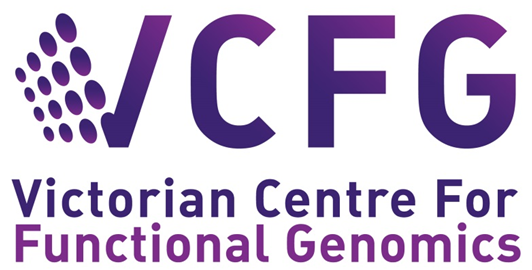
Victorian Centre for Functional Genomics at Peter Mac
- 5
- 6
- 1
The VCFG is a high throughput screening facility that enables researchers Australia-wide the opportunity to become fully trained to perform screens across CRISPR, RNAi and Compound platforms. The lab has an extensive array of reagent libraries, automated liquid handling, plate reader and imaging instrumentation. Projects can be performed in 2D and 3D settings, with cell lines or patient derived materials. Every project is customised and analysed in house and managed using PRIME, our PRoject Information and Management Enterprise.
- Compounds
- Functional Genomics
- Proteomics
- Technology Development
- Screening resources
- Bioinformatics and Data Analysis
- High-Content Imaging
- Live-Cell Imaging
- Plate Reader
- Automated Liquid Handling
- Other Instrumentation

WEHI Proteomics Facility
- 4
- 2
- 3
The Proteomics Facility at WEHI enables researchers and clinicians to utilise the advanced proteomic technologies available at WEHI. We employ five full-time, post-doctoral researchers and have seven mass spectrometers for analysis of proteomics samples. We charge users the hours spent by facility staff on preparation of samples, instrument time (data acquisition on the mass spectrometer) and data analysis.
- Proteomics
- Single-cell omics
- Single-Cell Technologies
- Automated Liquid Handling
- Plate Reader
- Proteomics Equipment
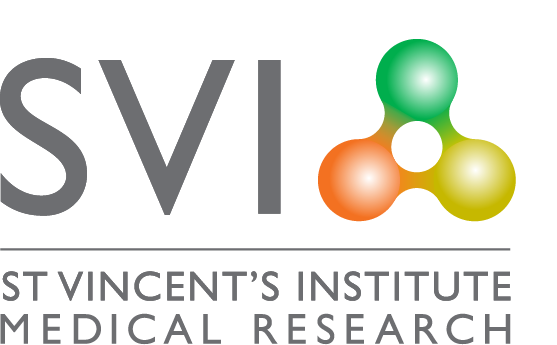
St Vincent's Institute Technologies Platform
- 4
- 6
- 2
SVI focus on a wide range of disease-oriented research:
- Cancer
- Type 1 diabetes
- Type 2 diabetes and obesity
- Heart disease
- Bone diseases, including osteoporosis
- Alzheimer's disease
Our in-house tools include:
- Flow Cytometry (analysers + sorters)
- 3 × LC-MS for intact protein, proteomics & metabolomics analysis
- 10x Genomics Chromium controller
- Proteomics
- Metabolomics
- Transcriptomics
- Single-cell omics
- Compounds
- Bioinformatics and Data Analysis
- Single-Cell Technologies
- Real-time PCR / qPCR / Digital droplet PCR (ddPCR)
- Metabolomics Equipment
- Proteomics Equipment

Melbourne Mass Spectrometry and Proteomics Facility
- 4
- 7
- 1
The Melbourne Mass Spectrometry and Proteomics Facility (MMSPF) located at the Bio21 Institute is one of the largest mass spectrometry facilities in Australia. The MMSPF is an open access facility that provides academic and industry researchers access to specialist mass spectrometry and proteomic equipment and expertise.
The Facility has 15 mass spectrometer based systems and five full time Ph.D. staff dedicated to providing all experimental design, training, machine time, and informatics support required to execute any proteomics or lipidomics research project. The facility provides all users direct access to instrumentation and trains them to perform their own proteomics or lipidomics experiments.
Techniques such as protein identification (e.g. Gel spots, or immuno-precipitated protein), full scale proteomics (TMT, SILAC, DIA, Label free, etc), phosphoproteomics , N-Terminomics (in-vivo protease activity), protein structural characterisation (PTM's, disulphide arrangement, HDX, Crosslinking).
The facility has the following instrumentation:
• 2 x Thermo OrbiTrap Fusion Lumos
• 2 x Thermo Q Exactive Plus Mass spectrometer
• 2 x Thermo OrbiTrap Eclipse mass spectrometer
• Thermo OrbiTrap Exploris 480
• Thermo OrbiTrap Exactive plus
• Agilent 6520 LC/ESI-TOF mass spectrometer
• Waters XS IMS QTOF Mass spectrometer
• Waters HDX Synapt system
• Bruker TIMS TOF Pro
• Shimadzu 9030 QTOF
• Shimadzu 8050 QQQ
The Facility has 15 mass spectrometer based systems and five full time Ph.D. staff dedicated to providing all experimental design, training, machine time, and informatics support required to execute any proteomics or lipidomics research project. The facility provides all users direct access to instrumentation and trains them to perform their own proteomics or lipidomics experiments.
Techniques such as protein identification (e.g. Gel spots, or immuno-precipitated protein), full scale proteomics (TMT, SILAC, DIA, Label free, etc), phosphoproteomics , N-Terminomics (in-vivo protease activity), protein structural characterisation (PTM's, disulphide arrangement, HDX, Crosslinking).
The facility has the following instrumentation:
• 2 x Thermo OrbiTrap Fusion Lumos
• 2 x Thermo Q Exactive Plus Mass spectrometer
• 2 x Thermo OrbiTrap Eclipse mass spectrometer
• Thermo OrbiTrap Exploris 480
• Thermo OrbiTrap Exactive plus
• Agilent 6520 LC/ESI-TOF mass spectrometer
• Waters XS IMS QTOF Mass spectrometer
• Waters HDX Synapt system
• Bruker TIMS TOF Pro
• Shimadzu 9030 QTOF
• Shimadzu 8050 QQQ
- Proteomics
- Metabolomics
- Lipidomics
- Single-cell Omics
- Bioinformatics and Data Analysis
- MetalloProteomics
- Cellular Metalomics (Elemental analysis)
- Metabolomics Equipment
- Proteomics Equipment
- Mass spectrometry
- Lipidomics
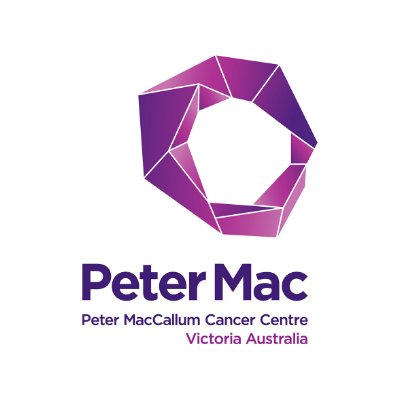
Peter Mac Molecular Genomics Core
- 5
- 3
- 2
The Molecular Genomics Core at Peter Mac processes samples, implements and develops new genomics protocols for cancer research and translational applications. We work predominantly with Next Generation Sequencing (NGS, Illumina compatible) but also with the nCounter technology (Nanostring) for gene expression of FFPE-derived samples. We operate a Chromium iX for single-cell sequencing and the Visium (10xGenomics) and GeoMx DSP (Nanostring) for spatial transcriptomics. We specialize in custom protocols and challenging cancer samples such as low input and FFPE-derived.
- Genomics
- Sequencing of pre-made libraries
- Transcriptomics
- Single-Cell Technologies
- Short-read sequencing
- Spatial Omics Technologies
- Automated Liquid Handling
- Other instrumentation

Metabolomics Australia
- 4
- 3
- 3
At Metabolomics Australia (MA) we combine high-throughput analytical technologies for the detection and quantification of metabolites in biological systems with the application of bioinformatics tools for data analysis, mining and interpretation.
We conduct targeted and/or non-targeted studies of small molecules (metabolites). The resulting profiles can reflect the actual cellular condition and provide useful indicators (biomarkers) of abnormalities/health within the biological system. Metabolomics requires robust experimental design with reliable sampling to capture the steady state levels of thousands of metabolites. We use complementary analytical and informatics platforms to detect the response of metabolites to environmental and genetic stimuli.
While we are a fee-for-service facility, we operate in a collaborative manner and work with you around your biological question. With our expertise in metabolomics and your knowledge of the biology we work on the best strategy for development of a research plan.
We conduct targeted and/or non-targeted studies of small molecules (metabolites). The resulting profiles can reflect the actual cellular condition and provide useful indicators (biomarkers) of abnormalities/health within the biological system. Metabolomics requires robust experimental design with reliable sampling to capture the steady state levels of thousands of metabolites. We use complementary analytical and informatics platforms to detect the response of metabolites to environmental and genetic stimuli.
While we are a fee-for-service facility, we operate in a collaborative manner and work with you around your biological question. With our expertise in metabolomics and your knowledge of the biology we work on the best strategy for development of a research plan.
- Metabolomics
- Spatial Omics
- Lipidomics
- Spatial Omics Technologies
- Metabolomics Equipment
- Lipidomics Equipment
- Liquid Handling

Doherty Applied Microbial Genomics
- 5
- 7
- 1
Within the framework of collaborative partnerships, Doherty Applied Microbial Genomics (DAMG) offers sequencing capacity, established expertise in bioinformatics and critical training to undertake microbial genomics research, which will help laboratories across Australia to breach barriers that are restricting access to this new cutting edge technology. The initiative is funded by the Department of Microbiology and Immunology at The University of Melbourne, and has a close alignment with the Microbiological Diagnostic Unit Public Health Laboratory (MDU PHL).
We have established expertise in bioinformatics and capacity to perform microbial genomics research make us uniquely placed to perform and facilitate research in this rapidly evolving area of clinical and public health microbiology.
Primary research themes include:
We have established expertise in bioinformatics and capacity to perform microbial genomics research make us uniquely placed to perform and facilitate research in this rapidly evolving area of clinical and public health microbiology.
Primary research themes include:
- Antimicrobial resistance,
- Infectious disease surveillance and one health, and
- Metagenomics and Software development.
Method specialties include:
- Amplicon 16S microbiota profiling,
- Shotgun metagenome sequencing, and
- Whole Genome Sequencing (WGS) on purified isolates.
- Genomics
- Microbiomics / Pathogen Genomics
- Amplicon sequencing
- Sequencing of pre-made libraries
- Long-read sequencing
- Transcriptomics
- Bioinformatics and Data Analysis
- Short-read sequencing
- Long-read sequencing
- Automated Liquid Handling
- Automated DNA/RNA preparation
- Plate Reader

VCGS/MCRI Genomics Facility
- 5
- 14
- 4
The VCGS/MCRI Genomics Facility offers a diverse portfolio of sequencing services on a clinical and research basis. We offer DNA and RNA extraction, Next Generation Sequencing assays (including sample QCs, library preparation, library QC, and sequencing; but currently excluding bioinformatics). The laboratory is NATA accredited and operates in accordance with NPAAC and ISO15189 standards.
- Genomics
- SNP micro-array genotyping
- Microbiomics / Pathogen Genomics
- Amplicon sequencing
- Sequencing of pre-made libraries
- Transcriptomics
- Single-Cell Omics
- DNA/RNA extraction
- Epigenomics
- Other
- Plate Reader
- Micro-array scanner
- Liquid handling
- Quality Control (QC) instrumentation
- Short-read sequencing
- Sanger (ABI) sequencing
- Single-cell technologies
- Real-time PCR / qPCR / Digital droplet PCR (ddPCR)
- Automated Liquid Handling

ONJCRI Cancer Single Cell Genomics Laboratory
- 7
- 3
- 2
The Cancer Single Cell Genomics Laboratory (CSCG) specialises in using innovative single cell techniques to deconstruct tissue samples and reveal the genetic architecture of individual cells and offers training, advice on experimental design and collaboration options.
The ONJ Cancer Centre is also home to the ACRF Centre for Imaging the Tumour Environment (CITE) which can provide researchers with the information required for the development of effective anti-cancer therapies. CITE offers one-on-one customised training, advice on experimental design and collaboration options. Researchers are supported at all stages of their project from design through to image analysis and reporting.
The ONJ Cancer Centre is also home to the ACRF Centre for Imaging the Tumour Environment (CITE) which can provide researchers with the information required for the development of effective anti-cancer therapies. CITE offers one-on-one customised training, advice on experimental design and collaboration options. Researchers are supported at all stages of their project from design through to image analysis and reporting.
- Genomics
- Single Cell Omics
- Spatial Omics
- Live-Cell Imaging
- Other Instrumentation
- Imaging
- Single-Cell Technologies
- Spatial Omics Technologies
- Real-time PCR / qPCR / Digital droplet PCR (ddPCR)
- Automated Liquid Handling

Australian Genome Research Facility (AGRF)
- 10
- 15
- 0
AGRF is a not-for-profit organisation, committed to quality and innovation. We actively seek to partner and share our knowledge and expertise in genomics. Through our national network, AGRF provides access to innovative and leading technologies, enabling genomics in the biomedical, agricultural and environmental sectors. From single gene analysis to whole genome sequencing (WGS), AGRF provides a full range of genomic capabilities and services with complementary bioinformatics across the entire biological spectrum, to academia, healthcare and commercial industries.
- Genomics
- Sanger (ABI) sequencing
- SNP micro-array genotyping
- Microbiomics / Pathogen Genomics
- Amplicon sequencing
- Sequencing of pre-made libraries
- Long-read sequencing
- Transcriptomics
- Functional Genomics
- Single-Cell Omics
- Spatial Omics
- Bioinformatics and Data Analysis
- Clinical Genomics
- Agrigenomics
- Nucleic Acid extraction
- Short-read sequencing
- Long-read sequencing
- Sanger (ABI) sequencing
- Single-Cell Technologies
- Real-time PCR / qPCR / Digital droplet PCR (ddPCR)
- Automated Liquid Handling
- Automated DNA/RNA preparation
- Plate Reader
- Micro-array scanner
- Other Instrumentation
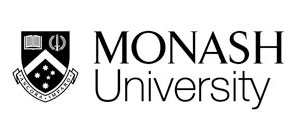
Monash Proteomics and Metabolomics Platform (MPMP) - Drug Target Identification Node
- 3
- 3
- 1
MPMP perform targeted and untargeted proteomics, lipidomics and metabolomics studies for a wide range of biomedical and pharmaceutical applications.
- Proteomics
- Metabolomics
- Lipidomics
- Metabolomics Equipment
- Proteomics Equipment
- Lipidomics Equipment
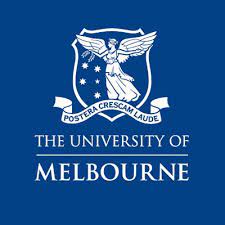
The University of Melbourne Centre for Cancer Research (UMCCR)
- 1
- 2
- 0
The University of Melbourne Centre for Cancer Research (UMCCR) brings together university leaders committed to improving the outcomes and quality of life for people affected by cancer. Led by Professor Sean Grimmond, an international leader in cancer genomics, the UMCCR takes a personalised, patient-centric approach, targeting key points along the cancer clinical care pathway.
- Genomics
- Transcriptomics
- Short-read sequencing